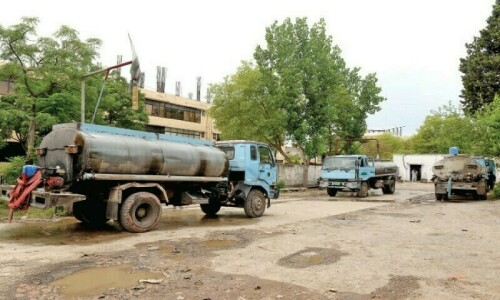WITH a large part of the world’s health resources diverted towards fighting wave after wave of Covid-19, it is easy to forget about other viral diseases that are just as dangerous and that continue to take a heavy toll on lives around the world. For instance, at least one person dies of hepatitis-related illness every 30 seconds, according to the WHO. In Pakistan, there are between 12m and 15m people infected with either hepatitis B or C, while at least 150,000 new cases are reported every day. Independent data suggests that hepatitis B and C have proved far more lethal than Covid-19 so far, taking between 300 and 325 lives every day in the country. The actual number of infections may be far higher since a large number of cases go unreported. Unsafe medical practices and a poor system of sewage disposal and sanitation are responsible for the spread of all five forms of hepatitis in the country. While hepatitis B and C are transmitted through direct contact with or transfusion of bodily fluid, such as blood, other forms — A and E — are caused by consuming contaminated food and water.
Most patients in Pakistan become infected with hepatitis B and C at healthcare establishments, according to the WHO. The virus spreads through the transfusion of contaminated blood, improper sterilisation of surgical equipment and dialysis machines, the reuse of syringes by quacks and drug users, and the recycling of razors at barbershops. This speaks volumes for the negligence of the authorities who fail to penalise quacks and crack down on unsafe medical practices. Who can forget the 2019 HIV/AIDS outbreak in Ratodero, Sindh, where the reuse of syringes by a local doctor infected some 1,440 people, more than 1,000 of them children? Today, as the world observes World Hepatitis Day, the authorities should take a critical look at where they have gone wrong and address their lapses to reduce the prevalence of hepatitis in Pakistan. It is deeply unfortunate that Pakistan, despite producing affordable medicines to treat hepatitis C infections, has the highest hepatitis C prevalence rate in the world. The largest number of hepatitis C patients are in Punjab where 7pc of the population is said to be infected. ‘Hepatitis can’t wait’ is the theme for this year’s World Hepatitis Day, and the Prime Minister’s Programme for Hepatitis must come up to expectations by ensuring nation-wide screening and establishing diagnostic centres.
Published in Dawn, July 28th, 2021
Correction: An earlier version of this editorial had mistakenly indicated that Hepatitis D is contracted through contaminated food and water. The error is regretted.












































Dear visitor, the comments section is undergoing an overhaul and will return soon.